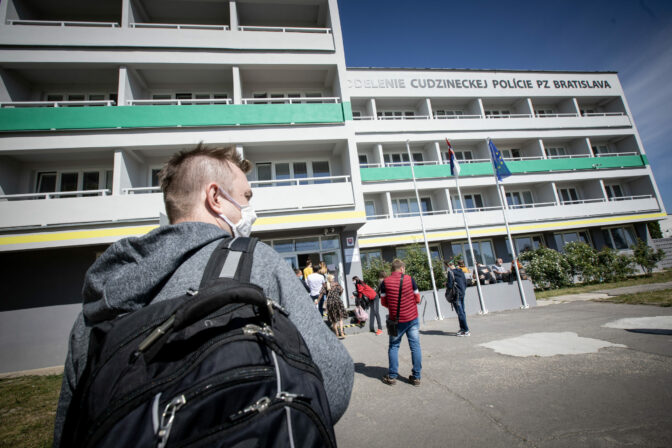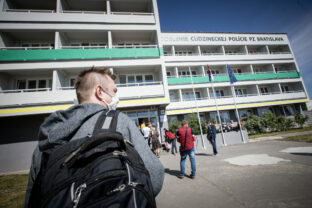BRATISLAVA, September 27, (WEBNOVINY) — Slovakia’s Supreme Court President Stefan Harabin has sent a complaint to the European Court for Human Rights in Strasbourg. Harabin complains that with its disciplinary action, the Constitutional Court plenum has violated his fundamental rights to a fair trial, prohibition of discrimination, freedom of speech, right to legal remedy and protection of property. “I demand justice against political chicanery for which the authors of some of the political lawsuits of the 1950s would not have been ashamed. Punishment of a legal opinion and freedom of speech is a mockery of the rule of law,” explained Harabin.
Harabin says that judges who claimed they are biased in the past took part in the decision in his case. He insists that it is impossible for them to once be biased against him and the next time not. The Supreme Court President underlined that the European Court for Human Rights already accepted his arguments in the past once and identified a violation of freedom of speech. However, the court did not need to adopt a final decision, as the parliament did not remove him from office. “Some politicians who have not read the court’s verdict intentionally withhold its arguments and are lying,” stated Harabin.
At the end of June, the Constitutional Court undertook disciplinary action and declared Harabin guilty of breaking his responsibilities based on his duties in managing the court and financial and internal audits by repeatedly not allowing the Finance Ministry audit’s at the Supreme Court. The Constitutional Court disciplinary committee punished Harabin by reducing his salary by 70 percent for one year upon a motion filled by Justice Minister Lucia Zitnanska in November 2010, for repeatedly not allowing the Finance Ministry to audit the court.
Harabin argues that executive bodies such as the ministries can not audit the Supreme Court, as this would interfere with the independence of the judiciary. The Justice Ministry, on the other hand, claims that a government audit was introduced when Harabin was justice minister and he also had no problem with it after he became Supreme Court President, until 2010.
In August 2011, Minister Zitnanska filed another disciplinary motion demanding Harabin’s removal from the position of judge, as Harabin has not appealed on behalf of the Supreme Court against the verdict of a lower instance court, which decided in favor judges suing the Slovak Republic in so-called discrimination lawsuits, as they were paid lower salaries than judges at the Special Penal Court.
SITA












